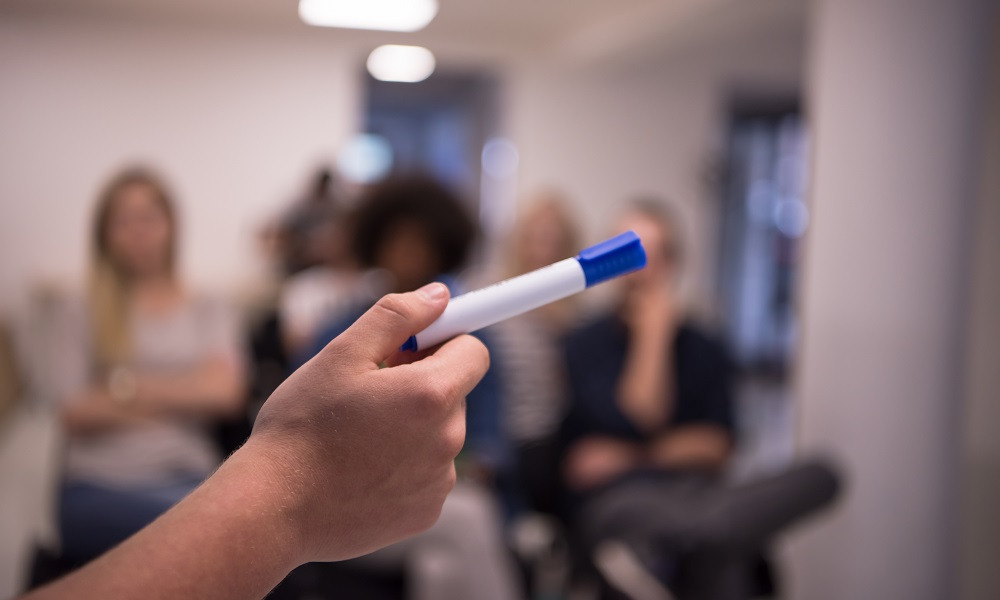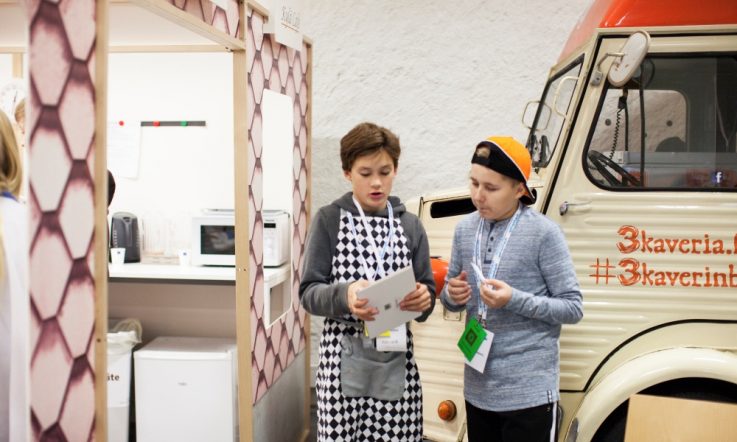If schools want to promote entrepreneurial thinking and action it's students who need to be in the driver's seat. That's one of the findings from a year-long Australian initiative.
Researchers also found students wanted teachers to step back rather than sit back and ‘best acquired entrepreneurial-mindedness when they collaborated regularly with their teachers or other adults, and had an authentic audience (often in cross-age settings)'.
The trial and research project was led by Victoria University's Mitchell Institute, New South Wales Secondary Principals' Council and Victorian Association of State Secondary Principals. The collaborative initiative involved 21 government secondary schools in New South Wales and Victoria using entrepreneurial learning principles developed by Professor Yong Zhao, who also acted as a critical mentor. It was completed in May this year.
A Mitchell Institute report Paradigm Shifters: entrepreneurial learning in schools detailing the findings and impact has been released today. It notes a growing workforce demand for graduates with skills and capabilities such as creativity, critical thinking, advanced problem-solving, collaboration and communication.
‘Entrepreneurial learning is a way of grouping skills and capabilities to position secondary students for success,' the report says. ‘Entrepreneurial-minded learners apply their curiosity and talents to identify and solve problems worth solving by creating products (goods or services) of value to others, and embracing mistakes as markers for success.'
It adds change is already underway in Australia, and around the world, as systems and schools introduce programs to increase student agency and engagement in secondary education, and provide relevant and personalised learning experiences.
Report authors Dr Michelle Anderson, Dr Bronwyn Hinz and Hannah Matus say the aim of the ‘paradigm shifters' initiative was to develop students who are more entrepreneurial-minded and complement work that is already being done. Leadership teams from participating schools, with students as active partners, applied three principles outlined in World class learners: Educating creative and entrepreneurial students (Zhao, 2012), within their local contexts:
- Develop more personalised education experiences, so each person can pursue passions and talents to excel in unique ways.
- Engage in creative and entrepreneurial product-oriented learning experiences that can, in authentic ways, benefit local and global communities.
- Cultivate and prototype new approaches, processes and or products.
‘At the heart of this initiative is a belief that students should have a direct say in their schooling,' the report says.
What did the researchers find?
Of the 21 schools involved in the trial, 19 agreed to take part in the research portion, which included interviews with students, teachers, school leaders and network coordinators. Benefits reported by participating students included increased confidence, greater resilience, stronger collaboration skills and improved empathy.
Outlining the key findings, the report says: ‘The research suggests that school context is important. The school's culture, structures and processes, and resourcing opportunities and constraints influenced the extent to which schools could embrace and provide students with entrepreneurial learning opportunities.'
The research suggests entrepreneurial learning can be: adapted to fit school's local contexts, needs, strategic priorities and student cohorts; gives schools and partner organisations a new way of approaching education; deepens student engagement and enhances their capabilities and mindsets; and, reframes student-teacher relationships from teacher-dependent to teacher-enabled.
Anderson, Hinz and Matus also report on the factors that both supported and got in the way of participating schools embracing entrepreneurial learning. On the plus side, these factors were: providing opportunities for students and teachers from different schools to network, having a school leadership culture that supported experimentation and willingness to learn from mistakes; having teachers who could build student skills and confidence by guiding and scaffolding rather than directing them; and, curious and interested students who care enough to act. The limiting factors were: time pressures and competing demands; teachers dominating the process and allowing students to step up; and, fear of failure and other negative emotions on the part of students.
Advice from students to peers and teachers
The Mitchell Institute report includes ‘do and don't advice' from students to help schools increase entrepreneurial thinking and acting. Advice to fellow students includes: Go in with an open mind; Be prepared to get out of your comfort zone as much as you can; Don't complain about problems in your school, they are your problems too to solve; Speak up because your opinion does matter; Accept things might not go smoothly – it's okay to make mistakes; Embrace working with students above and below you in years.
Student advice to teachers includes: Trust us; Recognise that everyone is smart and talented in different ways; Let us be in the driver's seat, put more control in our hands, step back, let go; Give us a chance to surprise you, to show you what we are capable of; Remember these are student not teacher projects; Discover what we are interested in. Give us opportunities to express our interests, ask us what we want; Give us choice, make school a bit less structured; Give your honest opinions; Act on feedback you seek from us; Back us.
Principals reported the greatest opportunities offered by the initiative were authentic student learning and collaboration with other schools. In terms of student outcomes, school leaders and teachers highlighted the benefits of learning new knowledge, skills and ways to work and learn, increased student confidence, developing an expansive mindset and an improvement in student-teacher relationships.
What happened during the school trials?
Year 7-12 students were the key partners in the approach. Roughly half the schools in the trial focused on Year 9s. In most, a teacher coordinated and supported the implementation – these tended to be experienced educators already in leadership roles with key skills and knowledge.
Students started the ball rolling by identifying an issue or problem they wanted to do something about. Working with teachers, they put together school action teams of between four and 20 students to research and co-design solutions. As the trial progressed, teams from different schools shared their solution ‘prototypes' with each other at learning days – discussing and testing out their ideas and using feedback to move forward.
Participating schools were also supported by two network coordinators (one in each state) who played a pedagogical and leadership role – keeping in regular contact, mentoring, helping to design and develop workshops, and ‘nudging' schools to move beyond the planning and talking stage to take action.
At the end of the trial, all the participants gathered in Melbourne for a network learning showcase and celebration where each student action team shared a video and poster they'd created documenting their learning journey.
Where to from here?
Anderson, Hinz and Matus caution that the schools involved self-selected to take part so it's not possible to generalise the findings to all schools. They say entrepreneurial learning appears to be a promising approach and there's a need to strengthen the research base in this area.
Nearly all the principals interviewed in this study saw the effects of the initiative as being long-lasting and were looking at ways to expand and embed the approach. In particular, they were keen to continue student-student collaborations within and between schools.
Stay tuned: We'll be talking to some of the participants in the trial to find out more about the student projects and solutions in their school and the approach taken.
References
Anderson, M., Hinz, B. & Matus, H. (2017). The Paradigm Shifters: Entrepreneurial Learning in Schools. Mitchell Institute Report No. 04/2017. Mitchell Institute, Melbourne.
Zhao, Y (2012), World class learners: Educating creative and entrepreneurial students, Corwin Press, London.
One of the pieces of advice from participating students to teachers was ‘Let us be in the driver’s seat, put more control in our hands, step back, let go’. How do you empower students to take control of their own learning while still providing guidance and scaffolding?
Student-student collaborations within and between schools were also seen as a particular strength of the initiative. How often do you allow students from different year groups to work together or share their work and ideas with each other? How could you develop student learning partnerships with other schools in your local community?
The full report is available for download from the Mitchell Institute website.



